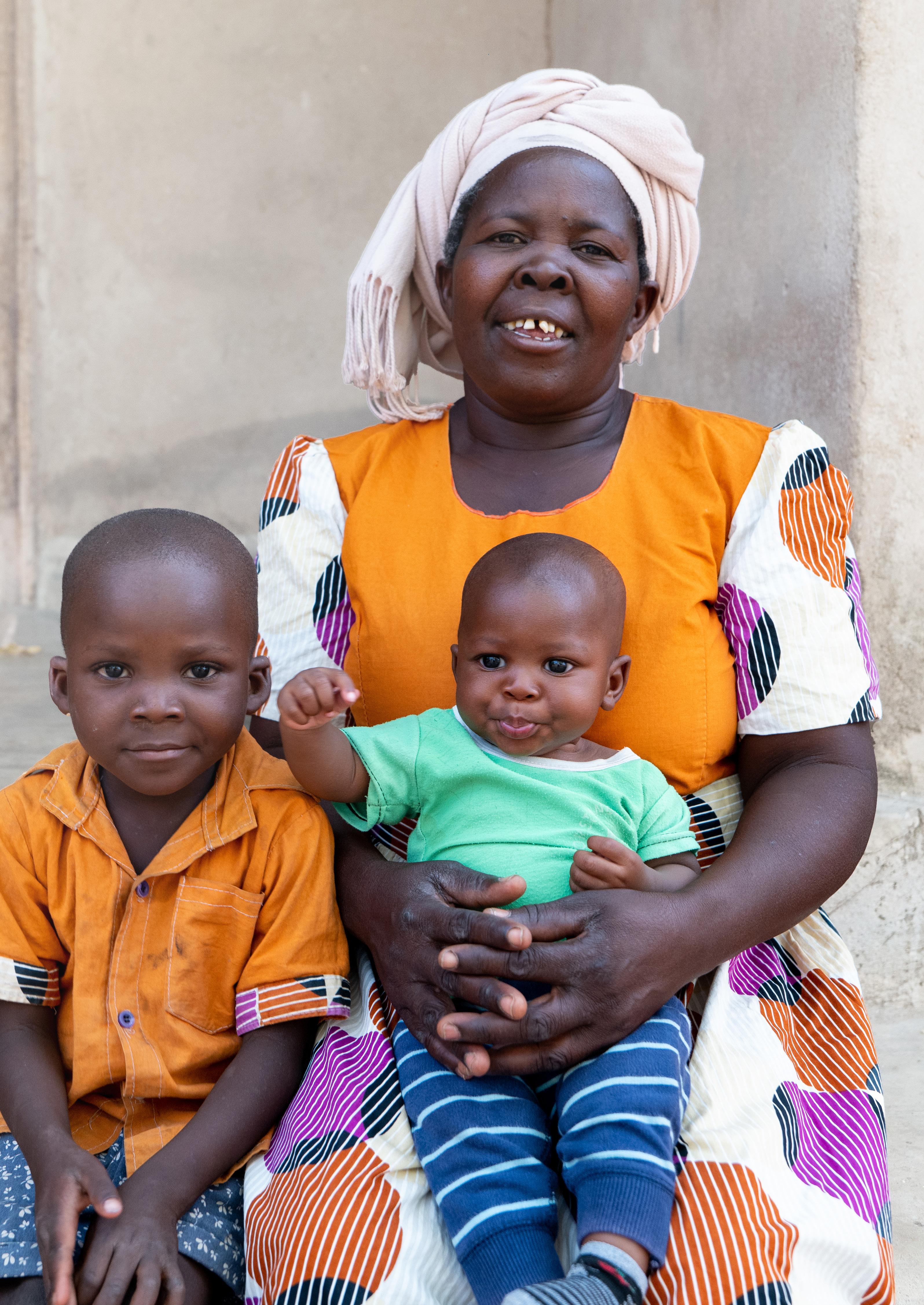
3 minute read
Giving peas a chance in Malawi
Malawi is Africa’s largest producer of pigeon peas. This versatile, low-cost, protein-rich and droughtresistant crop has been maligned in Malawi - regarded as ‘desperation food’ and only eaten when there is no alternative. But one widowed grandmother is making her children’s dreams come true with this humble pulse.
Esther Saizi (54) is lively, chatty and full of laughter. When we meet her, she is baking bread from pigeon pea flour which she sells to earn an income to support her family.
Advertisement
But Esther’s broad smile hides much sorrow and hardship.
Esther’s husband passed away two years ago. Besides her grief, she also has to contend with the harsh droughts and extreme weather brought on by climate change. And the Ukraine war has driven up the price of food and fertilizer.
Despite these difficulties, Esther has seen a remarkable reversal in her fortunes since 2019 when she joined a pigeon pea cooperative run by Christian Aid’s partner, the Nandolo Farmers’ Association.
Esther had been growing pigeon peas for eight years before joining the cooperative but she’d never been able to secure a fair price for her crop. Exploitative middlemen target isolated farmers like her to gain a sale at very low prices. But when Esther started selling as part of the cooperative, she was able to fetch much more. Esther’s membership of the cooperative also allows her to store her pigeon peas in a communal warehouse, safe from floods and storms.
Esther told us: ‘Before I joined the programme, I grew pigeon peas but I wasn’t aware that I could make some reasonable money out of it.’
With the profits from her pigeon pea crop, Esther began buying goats and today her herd has grown to 13. The goats provide milk and meat as well as manure for her crops, saving on expensive fertiliser. Esther even bought a sewing machine to make clothes for her family.
Esther isn’t the only businesswoman in her family. Her daughter Ziwone (25) and son-in-law Peter (28) are carpenters and with her pigeon pea income, Esther has bought tools to enable their business to thrive. Esther is also paying for her grandson Nespo (4) to attend nursery school.
Esther’s younger daughter Rashida (17) lives away from home to be near her school. The pigeon pea income is supporting Rashida’s education by covering the cost of her lodgings, a parttime tutor, exam fees and school uniforms. Rashida dreams of graduating from college and becoming a nurse. Pigeon peas are droughttolerant, so they thrive in southern Malawi. They’re cheap to grow from recycled seed and require only minimal amounts of fertiliser and pesticides, making them an ideal crop to grow in a region where over 60% of families live in poverty. And because pigeon peas fix nitrogen, they improve soil quality, boosting the yields of crops like maize, sorghum and peanuts.
The pigeon pea is an essential part of the diet of millions of people around the world, particularly in India where dhal is eaten as a staple alongside rice and roti. But the pigeon pea has been maligned in Malawi where it’s regarded as ‘desperation food’, eaten only when there is no alternative. Just 10% of the 400,000 tonnes the country produces each year is consumed domestically.
Christian Aid recently provided a machine to process fish food from a blend of pigeon peas and soya. Besides baking bread from pigeon pea flour, Esther plans to start growing fish in small ponds and selling them to earn an additional income.
This transformation in Esther’s fortunes has only been possible because of the generosity of Christian Aid’s supporters. By giving this Christian Aid Week, you can help more farmers like Esther secure a fair price for their crops and make their children’s dreams come true.
You can find more information and donate online at caweek.ie
Esther Saizi with her grandsons Nespo (4) and Emmanuel (4 months). With her pigeon peas, Esther bakes delicious bread, cooks nutritious meals and snacks, supports her daughters’ dreams and sends Nespo to nursery school.
For 2023, we’re inviting churches to create their own ‘digital envelope’ for Christian Aid Week, making it even easier for people to donate online. Members of your church can donate directly into your church’s digital envelope using their bank details or PayPal account. For more information please visit: envelope.christianaid.ie










